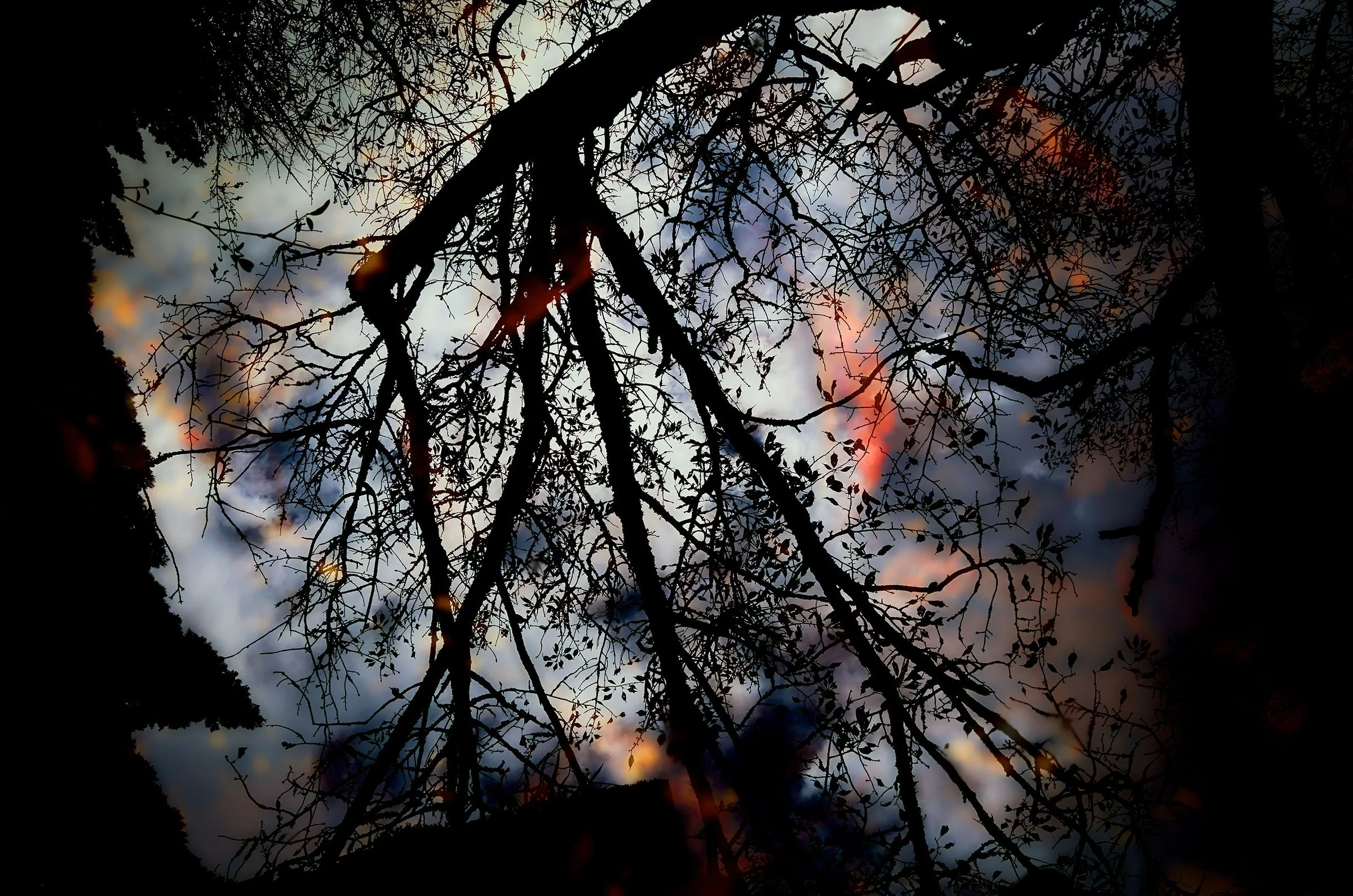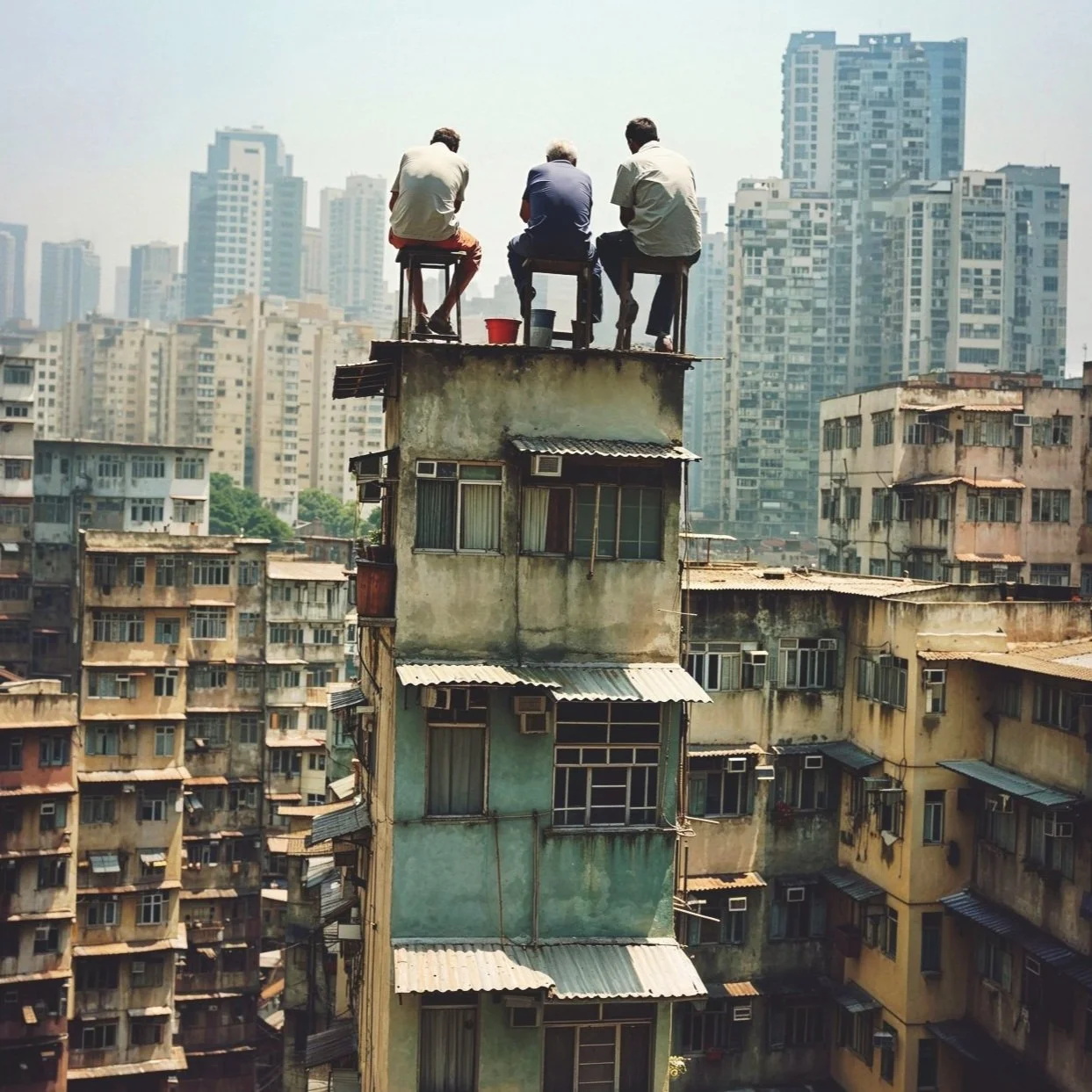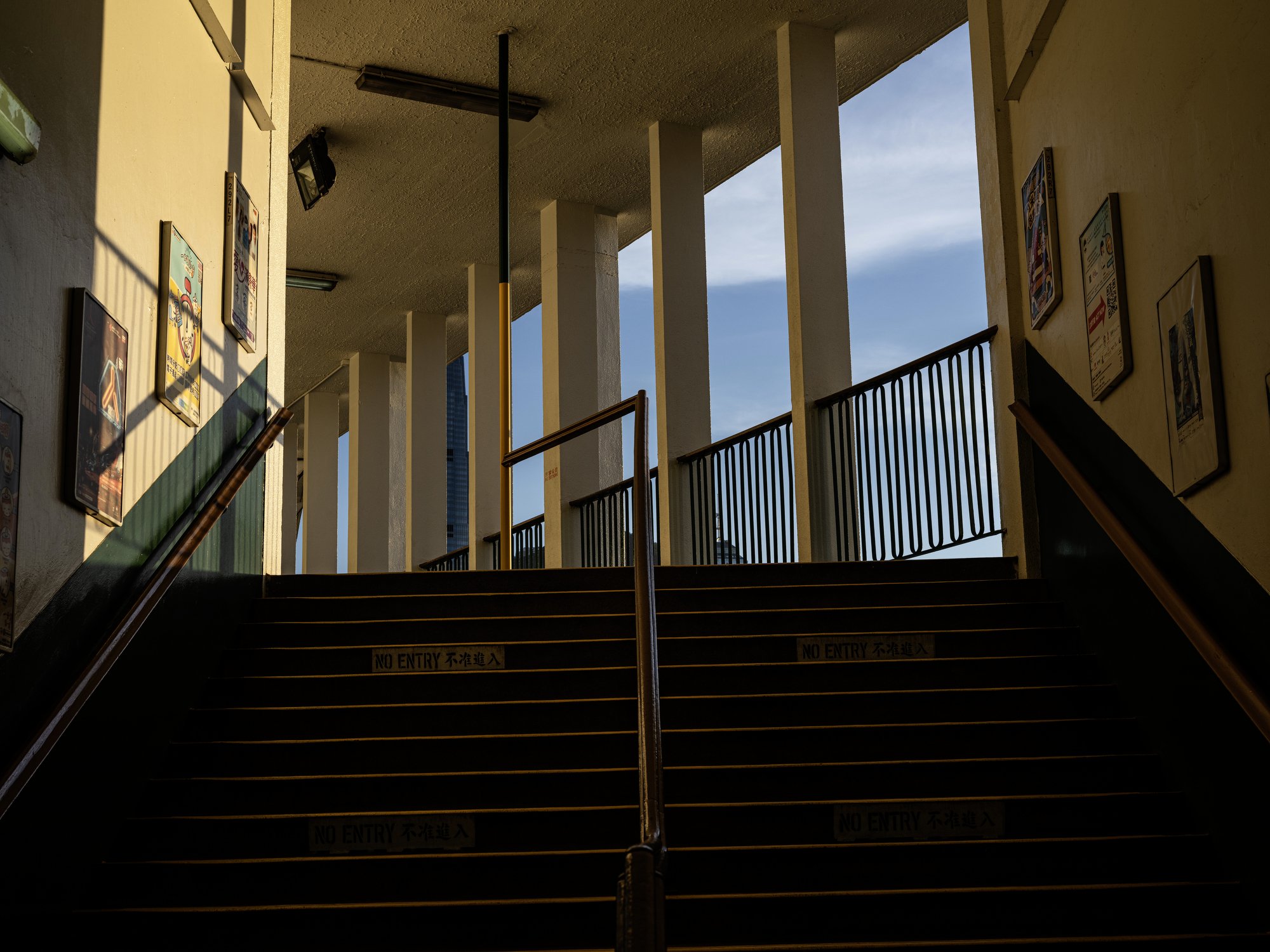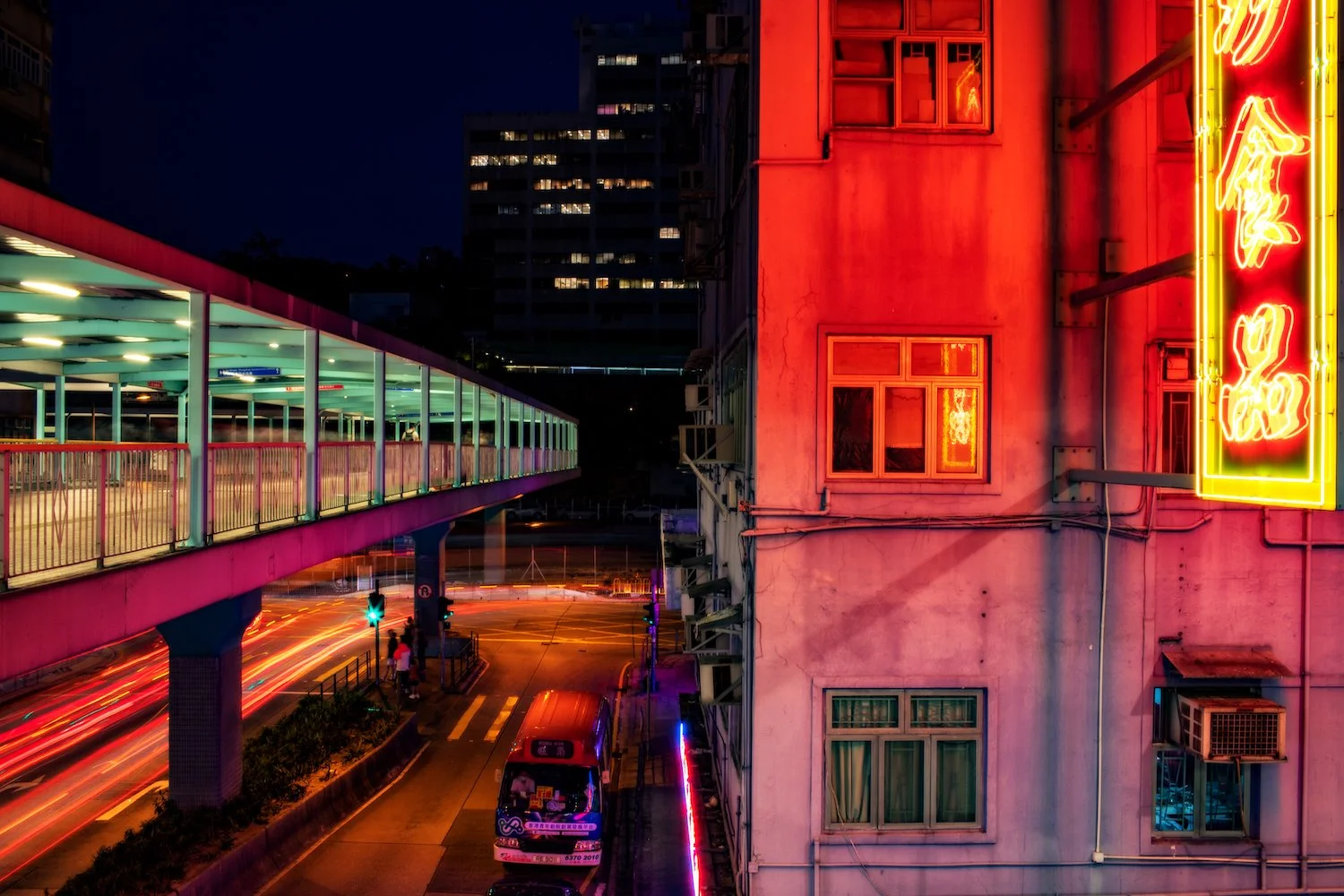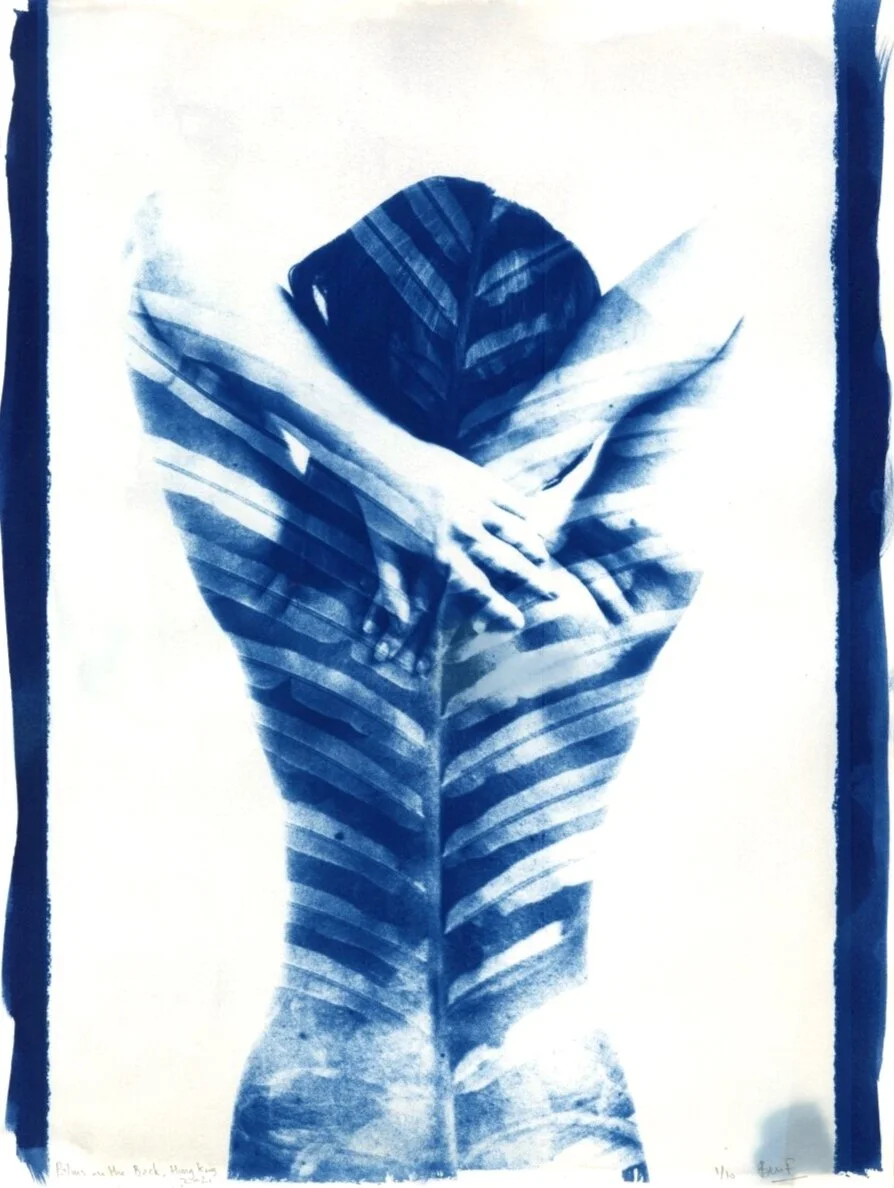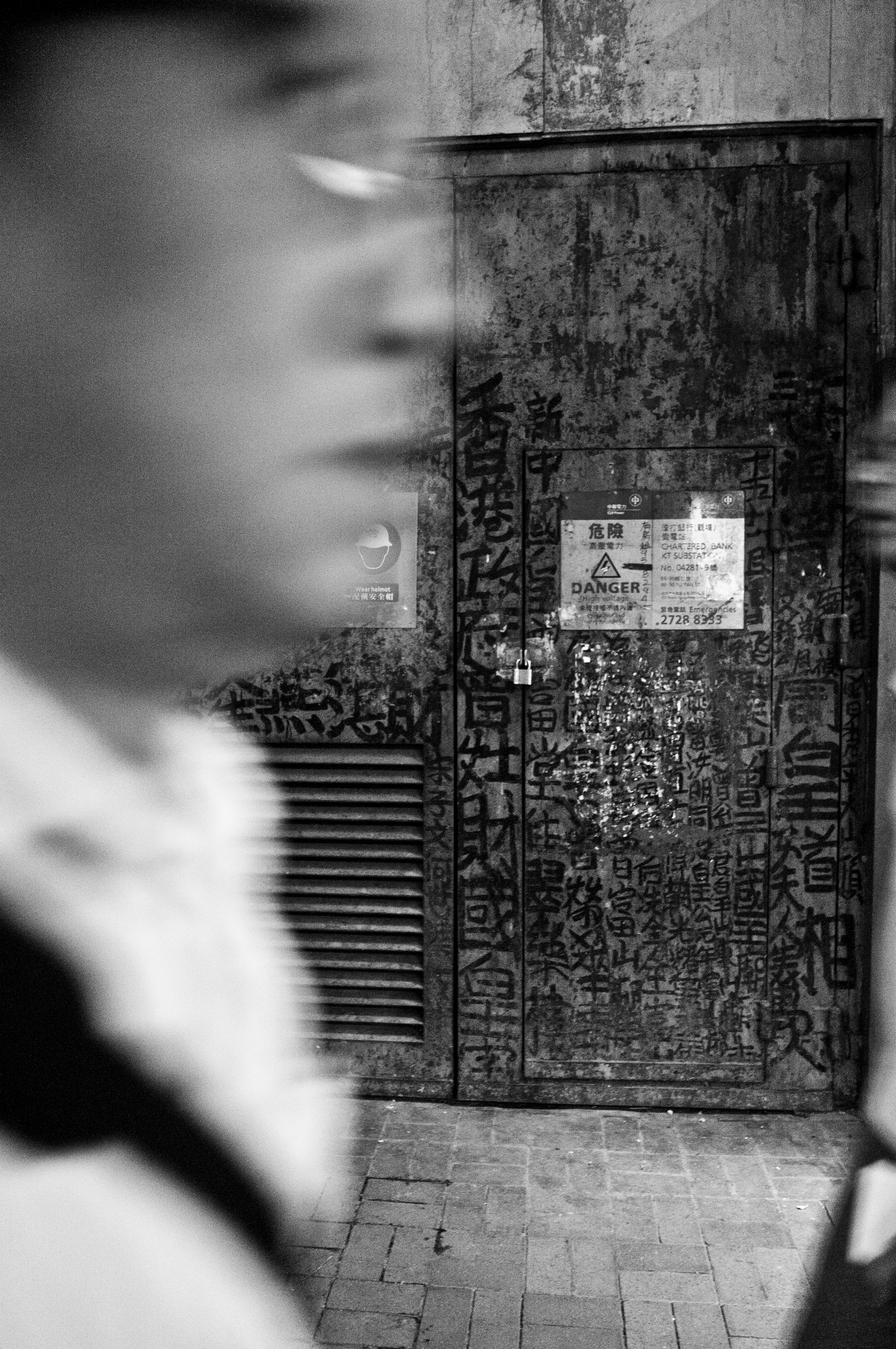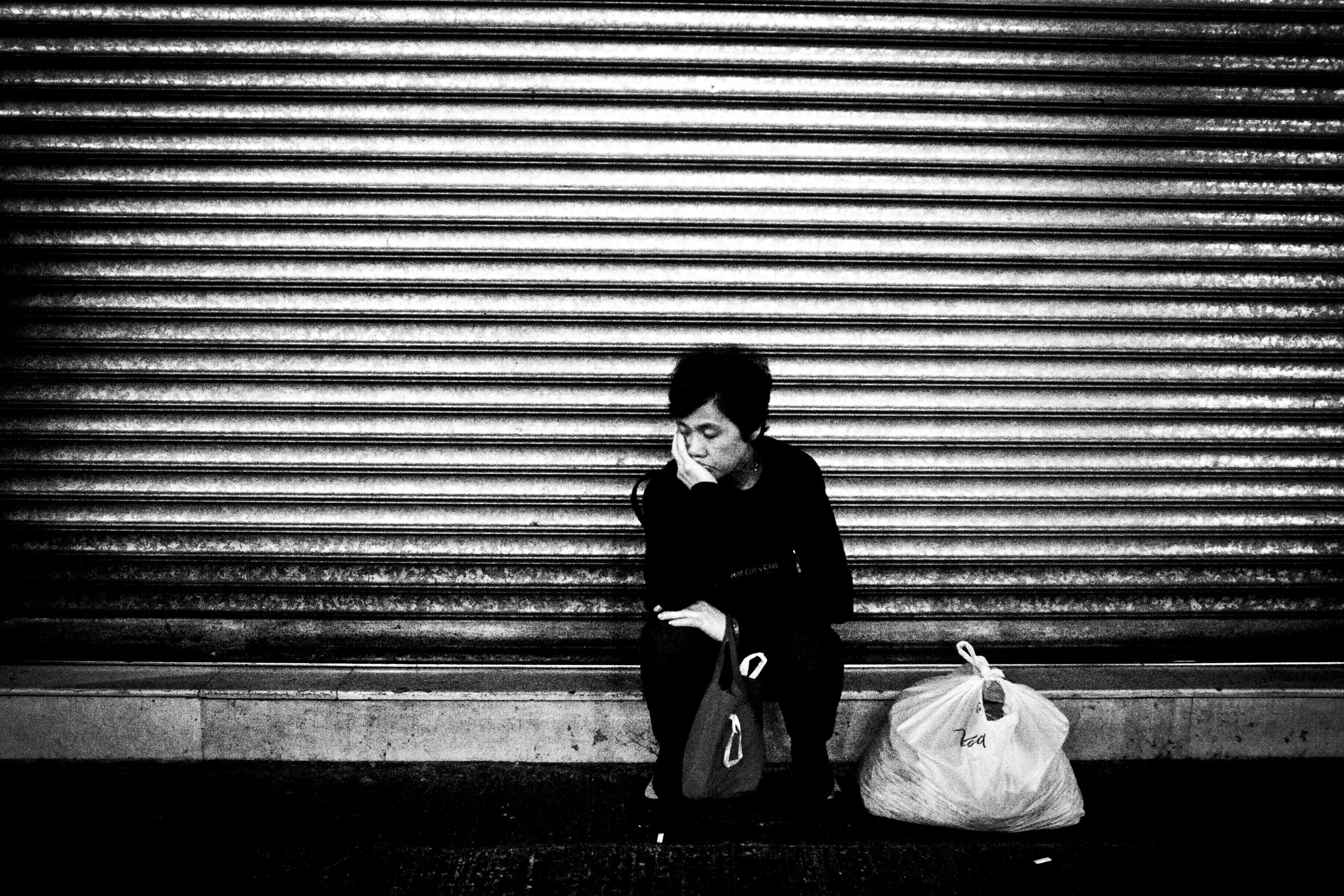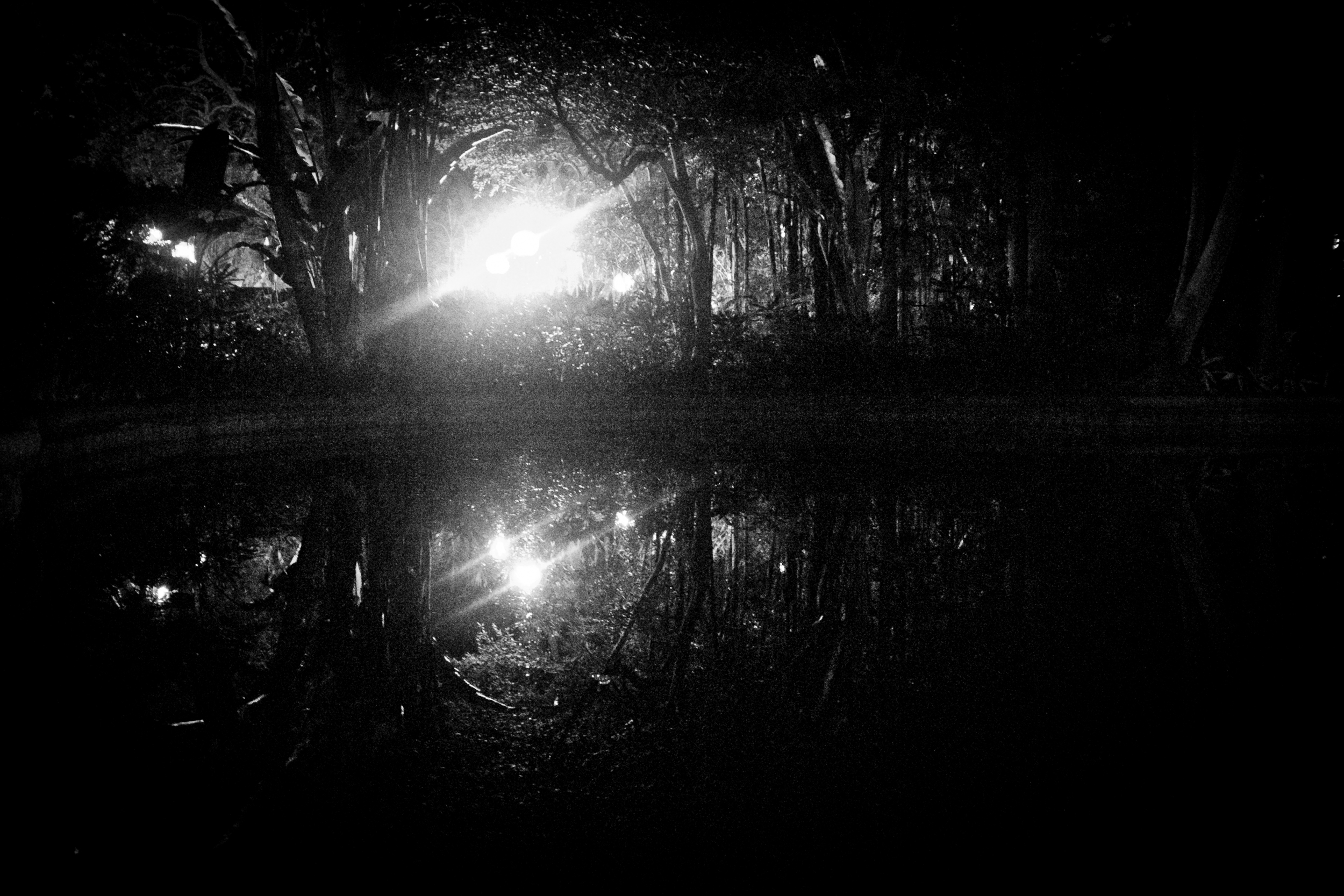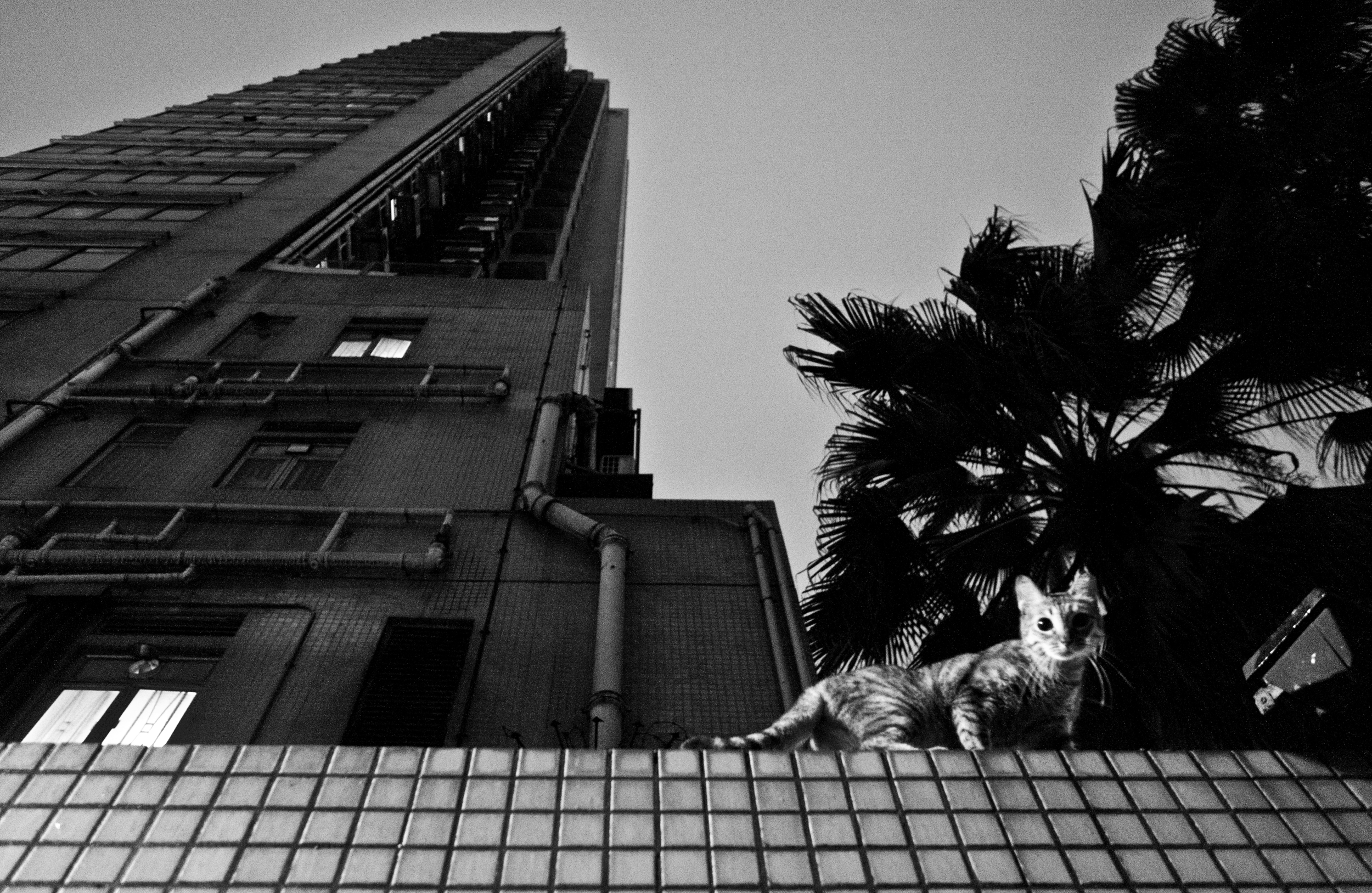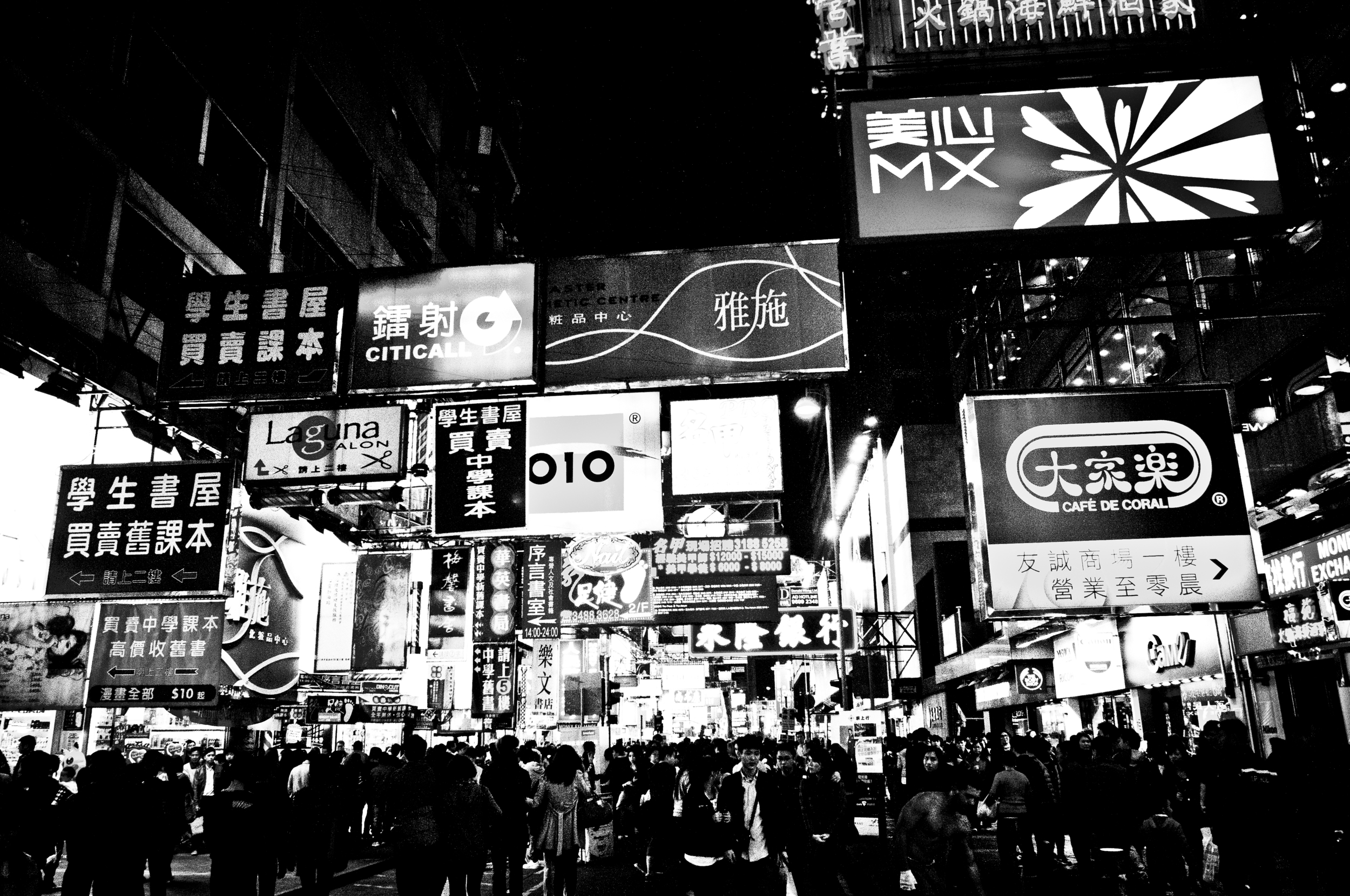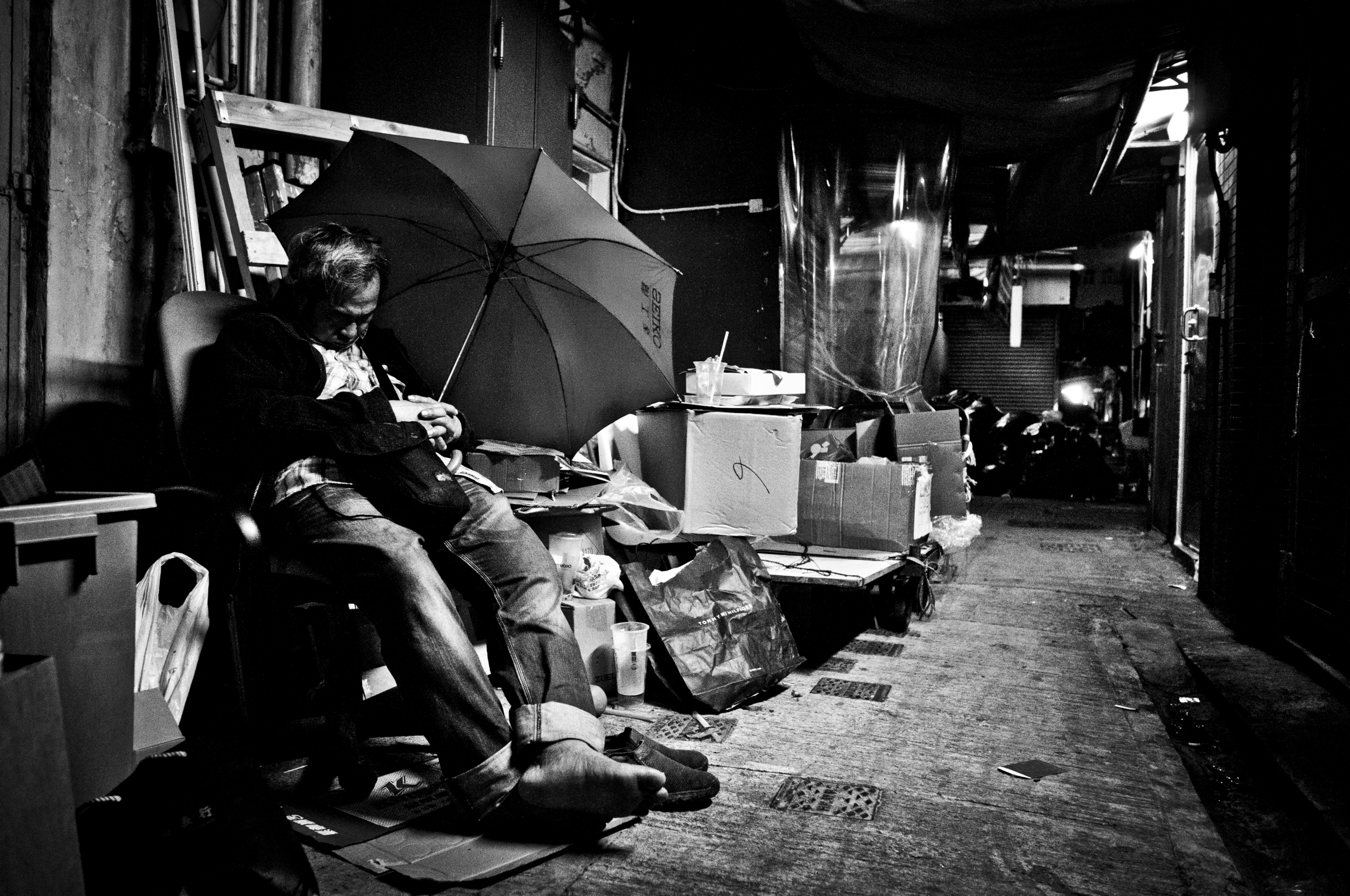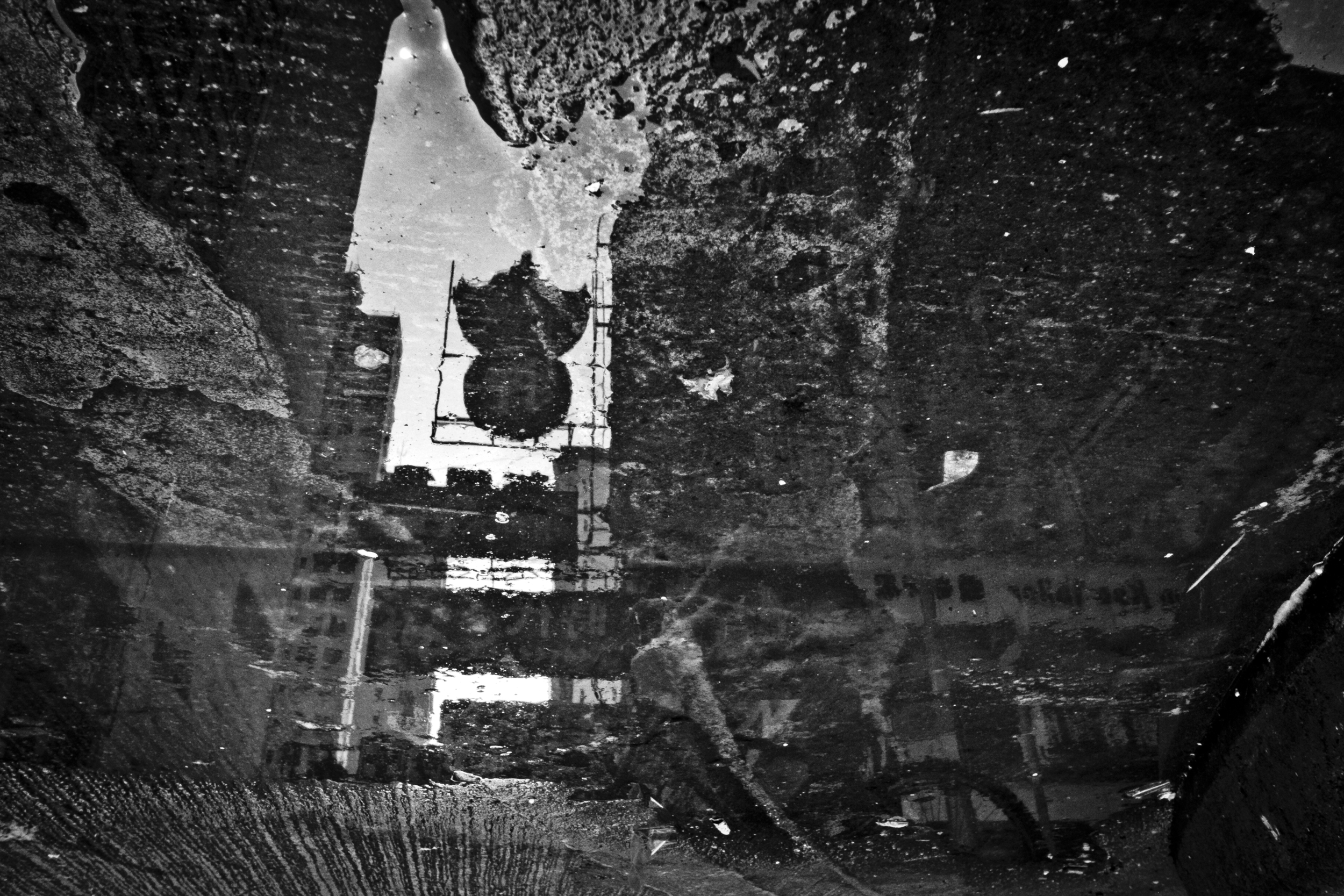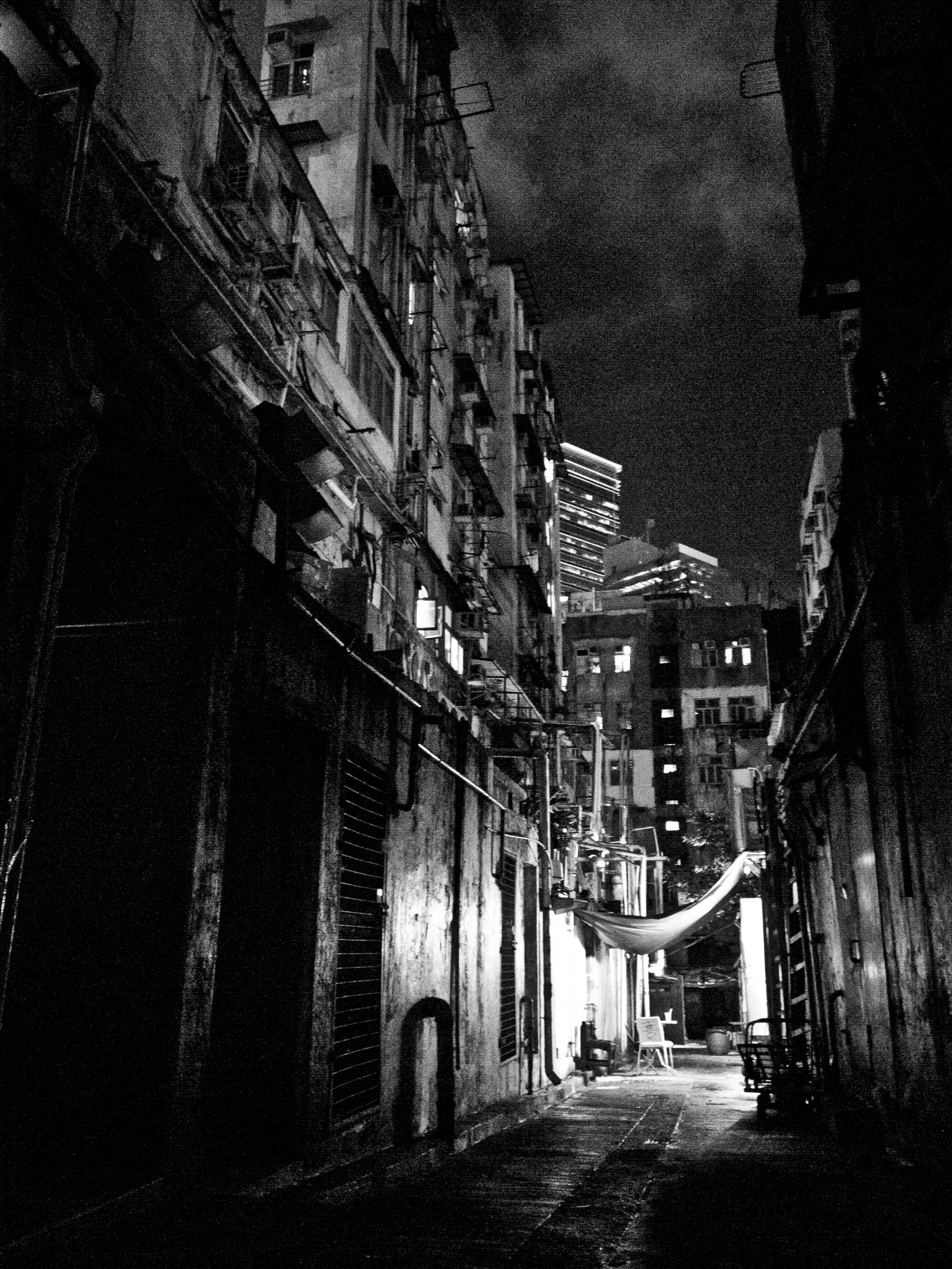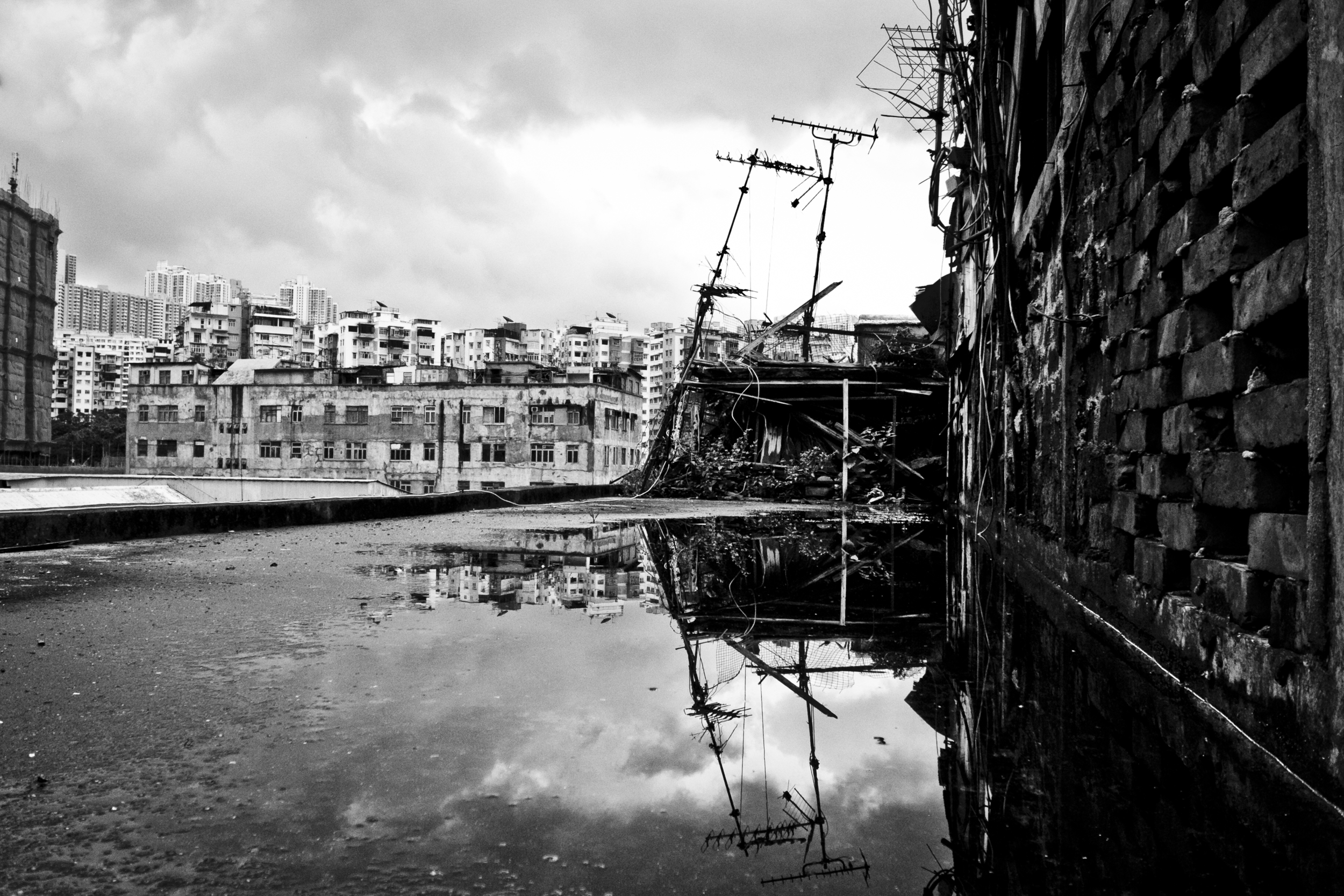KC Kwan (Kwan Kam Cheong, born in Hong Kong 1977)
‘I’m not a photographer, I just like taking pictures.’
KC Kwan was the overall champion winner of the first Photo Book Award organized by Asia One in 2012. The book ‘Homebound’ was published as his award.
KC Kwan’s story is one of an insider. KC Kwan didn’t have the privilege to enjoy an expensive education, not even an amateur photography course. KC Kwan comes from a humble background. He never knew his father. His mum, a hawker, died when he was four, leaving KC and his twin brother behind. He struggled at school and started working at the age of 18 at a printing shop, an industry he is still involved with today.
Around 2010, he bought his first camera, a D3100 Nikon. For the first time it was cheap enough for him to buy and it was a trendy thing to do. After reading his first book on photography, a free copy given to him by his printing company, he started like most people with shooting flowers and landscapes. However he found it very boring and the book ended in the bin. He didn’t like hiking anyway.
Looking for more inspiration, he turned to the World Wide Web and discovered artists such as Henri Cartier-Bresson and Robert Frank. However, he wasn’t very fond of their straight and formalist style. Garry Winogrand was the first photographer that inspired him. There was something about his loose style, tilted frames and fascination for public life that was attractive. But it wasn’t until he bumped into a grainy black and white picture of a dog by Daido Moriyama when something struck a chord. He was drawn to the peculiar Japanese language that was so unlike its European or American counterparts, presenting a certain randomness that didn't stick to formal rules, which resonated with Kwan.
So a year later, he dumped his big camera (which tended to frighten his subjects anyway) and exchanged it for a smaller point-and-shoot Ricoh GXR. This is when KC Kwan started taking the night shots. Kwan's normal shifts are from 9pm to 6am, but sometimes he gets lucky and can leave earlier. After leaving the factory in Chai Wan, he normally takes the bus 118 to Sam Shui Po, has supper in Mongkok and then wonders the streets for hours looking for old neighborhoods. Since a night bus is a few dollars more expensive than the day one, he started out photographing just to kill time, until the first daytime bus begins operation again. What started out as a habit quickly grew to an obsession. On one particular day he walked so much his shoes fell apart.
For these night shots, photographers normally go out in groups but he prefers to work solo. He endured strange encounters and was once attacked by a mad man who scratched his face like a wild cat. But asking him if he ever fears the dark of night, he just shrugs his shoulders and replies a dry “no”. What makes him uncomfortable is not shooting for a few days. By now photography is part of him and the one thing in life that gives him some dignity. “In Hong Kong, if you have no degree, you are nothing.” he says. “Photography is a way the experience and see the cruel world. Cruelty is part of this world and our lives.”
However KC Kwan doesn’t want to be seen as a victim. “I have a poor life but I’m happy”. When asked: “So do you have any dreams and ambitions?” He stared and replied; “I’m a dried salted fish”. In Cantonese that’s a metaphor for someone that has no dreams, ambitions or concrete plans. “I just feel like I’m chasing something although I don’t know what that something is.’
There are many people with cameras, but there are very few photographers. Photography is about the way you feel the world. KC Kwan is a true gem capturing Hong Kong’s dark underbelly, not as an observer but as an insider. He is just a normal guy, like so many quiet workers in Hong Kong enduring the hardship of life. However KC Kwan has a special talent, a pure and genuine eye, which we were so lucky to discover and share with you.
KC Kwan (關錦昌, 生於香港 1977)
「我不是攝影師,只是喜歡拍照而已。」
關錦昌獲得 Asia One 在2012年舉辦的首屆《攝影書獎》的總冠軍,並得到出版攝影集《下流》(Homebound) 作為獎項。
關錦昌的故事鮮為人知。他出身草根家庭,父親與他素未謀面;做小販的母親在他四歲時去世,只留下他與孿生弟弟相依為命。他未曾接受高等教育,攝影對他來說更是奢侈的嗜好。十八歲時,他毅然輟學並開始在印刷公司工作。
於2010年,關錦昌開始自學攝影,並買了人生中第一部相機 Nikon D3100。由於經濟條件所限,他沒有能力負擔昂貴的器材,甚至他讀的第一本攝影書也只是從工作的印刷廠免費攫取。像大多數攝影新手一樣,他常練習拍攝風景及植物,但欠缺動感的題材很快令他生厭,初期的作品他都不大滿意,就連攝影書最後也被他扔掉。
為取得拍攝靈感,關錦昌開始在網上欣賞其他攝影師的作品。Henri Cartier-Bresson 和 Robert Frank 整齊及注重形式的風格不引起他的興趣;Garry Winogrand 的作品構圖鬆散,題材圍繞尋常大眾生活,卻令他着迷。森山大道一幀以狗作題材的黑白照片更深深震撼他的心靈,他欣賞森山大道的攝影風格,更由衷敬佩森山大道的攝影哲學,他發現攝影沒有一定的規則和方法,率性隨意的表達手法也能拍攝出好作品。
之後,他放下了單反(事實上,體積龐大的相機也常常驚動他的拍攝對象),改用輕巧方便的Ricoh GXR 趁晚間閒逛拍攝。關錦昌在柴灣某印刷廠返通宵更,偶爾幸運可提早下班,他會乘搭N118號巴士到深水埗,在旺角吃過飯後,他愛穿梭大街小巷,觀察舊區建築。起初,拍攝夜晚的街頭純粹是消磨時間的方法,因為通宵巴士的車費較貴,他通常等待至早上才乘車回家。但慢慢地,攝影已變成了他的習慣,甚至是生命中不可或缺的一部份。
街頭攝影師在晚上拍攝時通常三五成群,關錦昌卻偏愛在黑夜中獨自遊走,隨心尋找拍攝題材。獨來獨往有時也為他帶來麻煩,例如有一次,他在拍攝途中被一名神經失常的男子襲擊,抓傷了面部。當問到他會否因此害怕在晚間外出拍攝時,他聳肩說:「更令我感到不安的,是幾天沒有拍照。」對他而言,攝影除了是生活的一部份,更是他的尊嚴。「在香港,沒有大學學位,你就甚麼都不是,」他說「現實是殘酷的,攝影讓我們看清楚殘酷的世界。」
然而,關錦昌不願被視作悲劇人物。「雖然窮,但我活得很快樂。」他自嘲自己是一條「鹹魚」。(在廣東俗語,「鹹魚」意指生活漫無目的、沒有理想、欠缺計劃的人。)「我正在追趕某些東西,雖然我並不清楚自己確實想追求什麼。」
今天,相機不再是奢侈品,但真正稱得上攝影師的人卻不多。很多人窮畢生精力追求更先進的器材和純熟的技巧,然而攝影的本質是人與世界的聯繫。透過鏡頭,攝影師記錄低下階層在逼迫中掙扎,敘述出香港不為人知的黑暗一面。關錦昌並非置身事外的旁觀者,卻是黑暗城其中一個齒輪。他平凡而不起眼,就像其他同樣在生活的漩渦中奮力求存的普通人,每天營營役役為生計奔馳;同時他又與眾不同,憑着攝影的天賦和敏銳的觀察力,帶着相機走過一條又一條的街道,利用影像向觀眾述說一個又一個黑暗城的故事。


